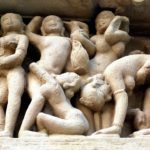Nomadism Philosophy
For many people, the desire to move around and live “location independent” lives is deep in their blood, and makes up a major part of their identity and worldview. These worshipers of movement love to seek out new environments, cultures and opportunities, seeing it as an opportunity to experience all life has to offer, and to grow intellectually and spiritually.
Nomadism History
Human beings have been around for about 100,000 years, and it’s only been in the last few thousand that we’ve lived our lives in once place. Prior to modern civilization, we lived nomadic lives, following weather patterns, chasing game, or sometimes running away from threats. Some evolutionary theorists suggest that our upright stance (when compared with primates) is a result of our ancient impulse to travel long distances. The fact that humans were unique among all species to have traveled the entire world (before civilization and its mechanical vehicles) pays testament to our unusual ability and desire to move beyond our comfort zones and seek out new frontiers. Most of our literature celebrates this impulse as well — most traditional stories involve heroes who travel to unknown lands to find treasure and adventure.
With modern technologies like affordable air travel and the internet, it’s now much easier for Nomadists to truly indulge in their spiritual path by traveling cheaply and easily, and often by working as “digital nomads” anywhere in the world.
Nomadism Practice
From short holidays to year-long sabbaticals to permanent location-independence, the Nomadist tends to practice their religion through travel. However, Nomadists can also enjoy “virtual travel” by reading travel literature or researching locations on the Internet. Meeting with other Nomadists and sharing travel tips is a way for them to commune with each other. Nomadists who are unable to travel long distances can still practice their religion by engaging in long walks or day trips to nearby locales. Writing, journaling, photographing and blogging about travels is also a way to revisit their experiences and help share ideas with their community.
Nomadisms
Not all those who wander are lost
— J. R. R. Tolkien
I see my path, but I don’t know where it leads. Not knowing where I’m going is what inspires me to travel it.
— Rosalia de Castro
We shall not cease from exploration, and the end of all our exploring will be to arrive where we started and know the place for the first time.
— T. S. Eliot
The world is a book, and those who do not travel read only a page.
— Saint Augustine
Wherever you go, go with all your heart.
— Confucius
Nomadism Community
Get ordained as a Nomadist Minister










